Wednesday 11th May saw Future Leap facilitating an event around the future of hydrogen. Delegates were invited along due to their involvement and expertise in relation to the topic of hydrogen, with a view to getting their input into whether there was an appetite for a regular hydrogen forum to progress its development within the region.
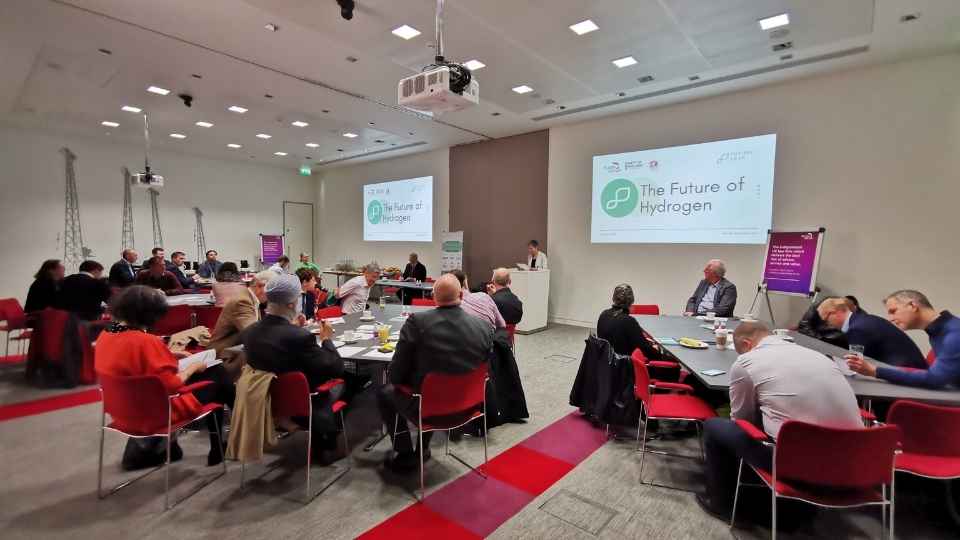
The business breakfast was kindly supported by Bristol City Council, the West of England Combined Authority and Burges Salmon, with Patrick Robinson from Burges Salmon kicking off the event with some scene setting. Patrick advised that they have never seen a sector develop as fast and as broadly as hydrogen. He illustrated the versatility and breadth of use of hydrogen and then drilled down into some examples of its potential usage e.g. the possibilities associated with stationary power and with aviation and the use of fuel cells for heavy lifting and large fleets.
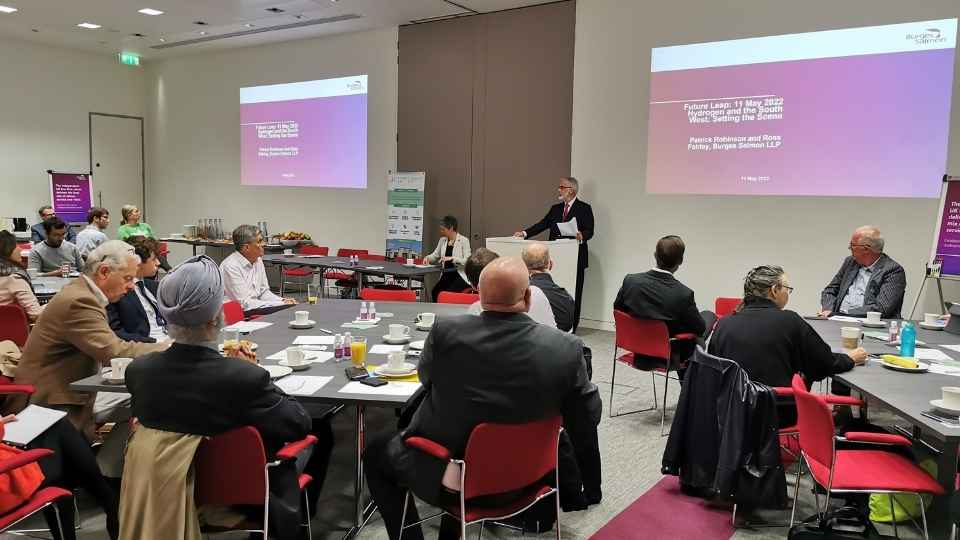
Delegates then heard from Cameron Davies from the department for Business, Energy and Industrial Strategy (BEIS). Cameron spoke about the government’s newly announced hydrogen strategy, the investments being made into the net zero hydrogen fund and how this links into the analysis of the 6th carbon budget, where hydrogen will account for 20-35% of that budget. Cameron also highlighted the government’s hydrogen roadmap which showed how Hydrogen will likely scale and develop. He also drew delegates’ attention to the Net Zero Strategy, (where hydrogen as energy storage is within scope), the Energy Security Strategy (which aims to double ambition of low carbon hydrogen production and set up a hydrogen certification scheme) and the Hydrogen Investment Package (where the Net Zero Hydrogen Fund is open for applications).
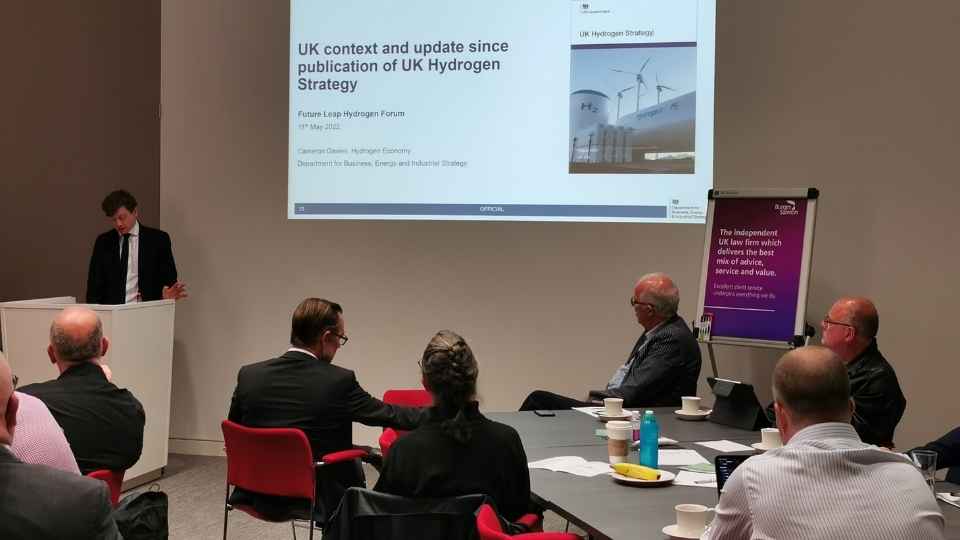
We then welcomed Dagmar Steffens, Head of Strategic Innovation at the West of England Combined Authority to deliver insights into the regional aspects of the development of a hydrogen economy. Dagmar highlighted that hydrogen is relevant to all five of the mayor’s key priorities, before giving examples of where the team are already supporting hydrogen innovations e.g providing funding for IAAPS, links to Hinkley C and how these link to priorities around transport improvements, net zero, jobs , homes and innovation. Dagmar explained that the West of England Combined Authority see themselves as a convenor and a hub for innovation within the hydrogen realm.

Chris Steele, Hydrogen South West Board Member and Skills Consortium Leader then spoke about Hydrogen South West; an industry driven collaboration consortium, which launched last week; its aim, to drive development of the hydrogen infrastructure in the region. Chris explained that there are nine core industry members within Hydrogen South West and that their aim is to attract investment and to upskill the workforce within the region. Chris highlighted that the Hydrogen South West Skills Consortium is ahead of other regions. They have already completed a skills mapping exercise and are in the process of developing three hydrogen introductory modules, to be delivered in September 2022.
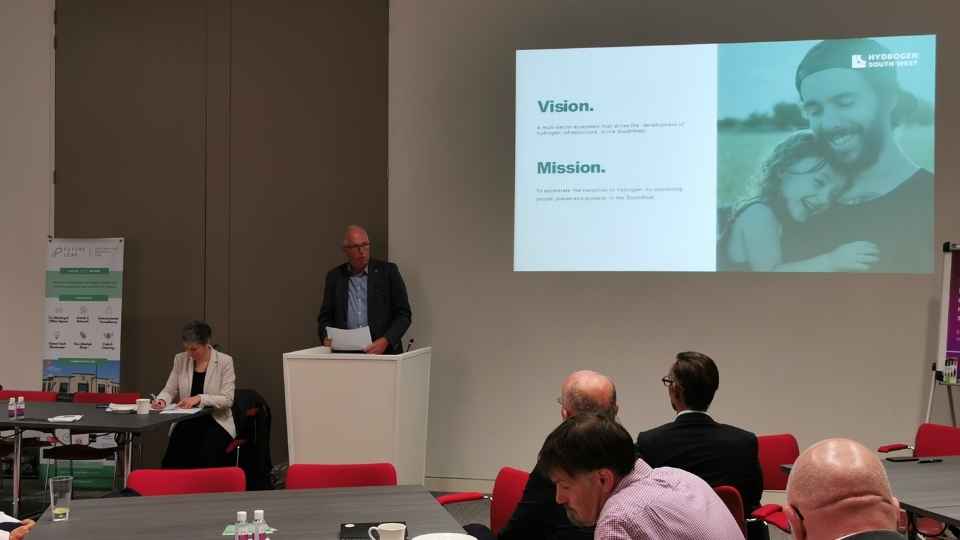
And last but not least, we welcomed Jas Singh, Managing Director of Auriga Energy to speak about the opportunities and projects within the marine sector, amongst other sectors. Jas spoke about his involvement with hydrogen back up power systems, hydrogen forklifts and a hydrogen ferry, which set sail in May 2012 and is still operational today. Jas shared that the key lesson from the ferry development was the importance of a multi-modal fuelling station e.g. for both boats and buses, and Auriga have put in a proposal for such a development and have been pushing for a hydrogen hub within the south-west.

Within breakout groups, delegates then spoke about the reasons for the development of a hydrogen infrastructure within the region. Facilitators fed back that there is a strong heritage of innovation within the region, really good skills, good linkages to other regions and a strong user base as reasons for such development. In terms of what needs to be done as a region, it was felt that the region needs to look at its quite fractured nature, some of the political impediments to development, the opportunity that the aviation industry presents in terms of accelerating hydrogen adoption and the opportunities associated with being a net exporter.

In the second breakout groups, the general consensus was that there is an appetite for a regular hydrogen forum, with cluster level development, connecting across sectors and across geographical areas being an important way forward. Delegates felt that these forums should be topic specific with a real project to focus on and demonstrate hydrogen’s effectiveness. The importance of public engagement and collaboration was raised and the suggestion that the national Hydrogen Strategy be the basis for a regional adaptation was felt important.
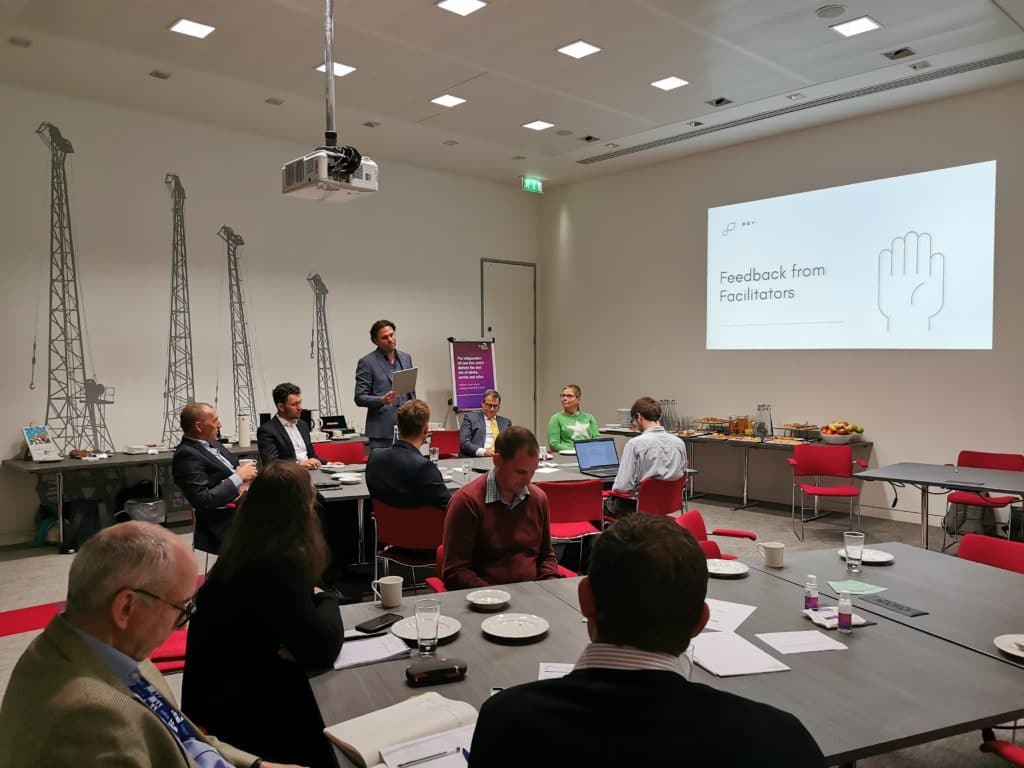
The event concluded with a request that any delegates wanting to be involved with such a hydrogen forum contact Future Leap (events@futureleap.co.uk) who will be in touch to discuss next steps.
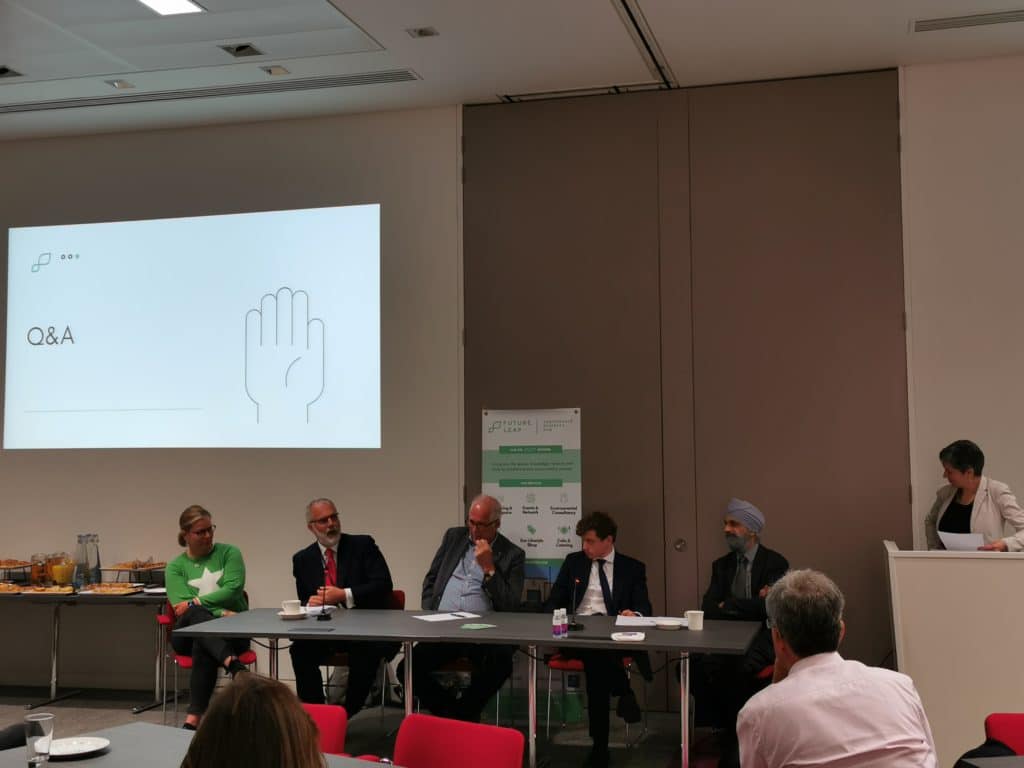
The Future Leap team would like to thank all the contributions made by attendees and pay special thanks to our speakers for their expertise and to our hosts and supporters Burges Salmon and Bristol City Council.




